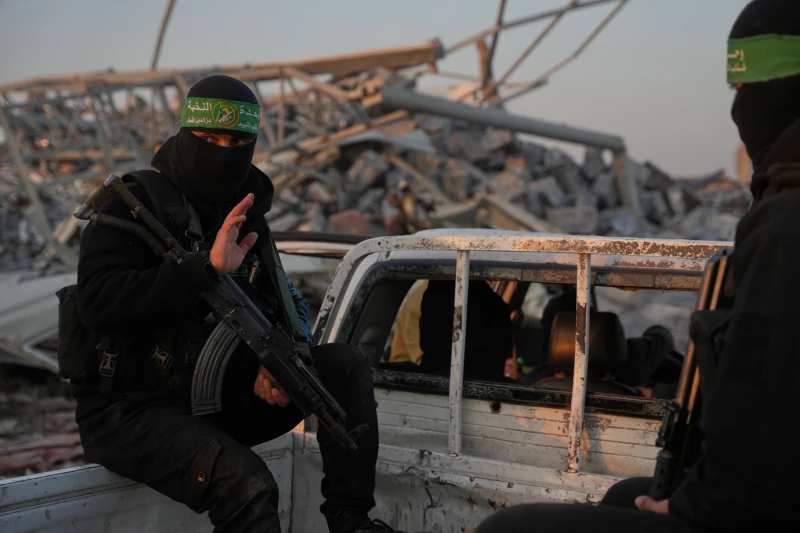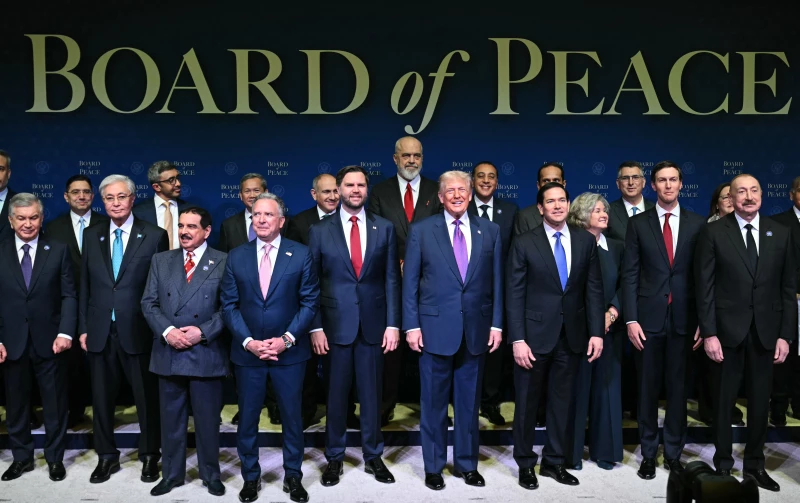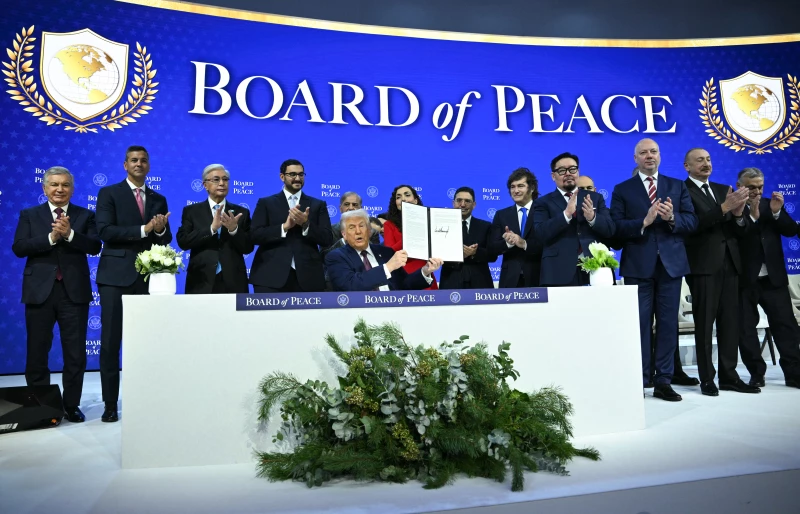ERBIL, Kurdistan Region of Iraq - Palestinian group Hamas announced on Wednesday that it was “ready” to strike a truce deal with Israel, just hours after Tel Aviv’s ceasefire with Hezbollah took effect, a move spearheaded by the United States and France, after weeks of wrangling.
"We have informed mediators in Egypt, Qatar, and Turkey that Hamas is ready for a ceasefire agreement and a serious deal to exchange prisoners,” an official from the group told AFP.
On October 7, 2023, Palestinian Hamas launched the al-Aqsa Flood operation, an unprecedented aerial and ground attack into southern Israel that killed around 1,200 people.
In response, Israel launched a full-scale military aggression against Gaza which is still ongoing a year later. Over 44,000 Palestinians have been killed as a result of the Israeli offensive.
The official who hailed the truce in Lebanon accused Israel of obstructing an agreement in Gaza.
After two months of a fully-fledged war between Israel and Hezbollah, a ceasefire deal brokered by the United States and France brought the deadly conflict to a halt, an agreement aimed at facilitating the withdrawal of Israeli troops from southern Lebanon over the next two months.
More than 3,000 people were killed in over a year of fighting between Hezbollah and Israeli forces, according to the latest tally by the Lebanese Ministry.
The Lebanese army said on Wednesday that it was “taking the necessary measures” to deploy forces south after the ceasefire took effect while warning displaced people from frontline areas against returning to their regions before Israeli troops withdrew.
"With the ceasefire coming into effect, the army is taking the necessary measures to complete its deployment in the south," the army said in a statement. "The army command calls on citizens to wait before returning to frontline villages and towns that Israeli enemy forces have penetrated, awaiting their withdrawal.”
Footage and images circulating on social media platforms showed people joyously pouring into the streets of southern Beirut suburbs and areas in the country’s south to celebrate the end of hostilities. Huge numbers of displaced people are seen invading the highway linking Beirut to the southern regions of the country, as people return to their homes.
Lebanese Prime Minister Najib Mikati commended the truce as a "fundamental step" towards restoring stability.
Mikati thanked France and the United States for spearheading the ceasefire while reiterating his government's commitment to "strengthen the army's presence in the south.”
One of the first regional countries that reacted to the truce was Iran, welcoming the end of Israel’s “aggression”.
Iran’s foreign ministry spokesman Esmaeil Baghaei said in a statement that Tehran was “welcoming the news" of the end of Israel's "aggression against Lebanon.”
Baghaei stressed the Islamic Republic’s "firm support for the Lebanese government, nation and resistance.”

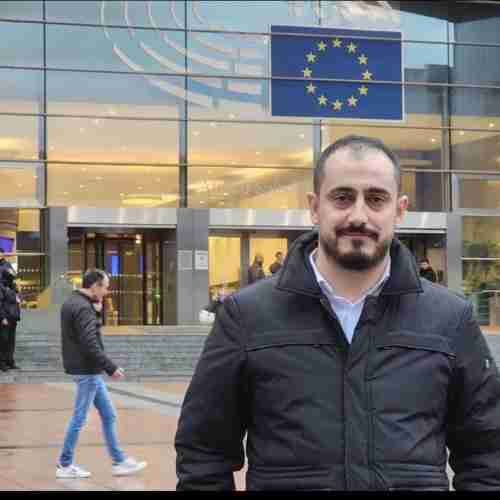
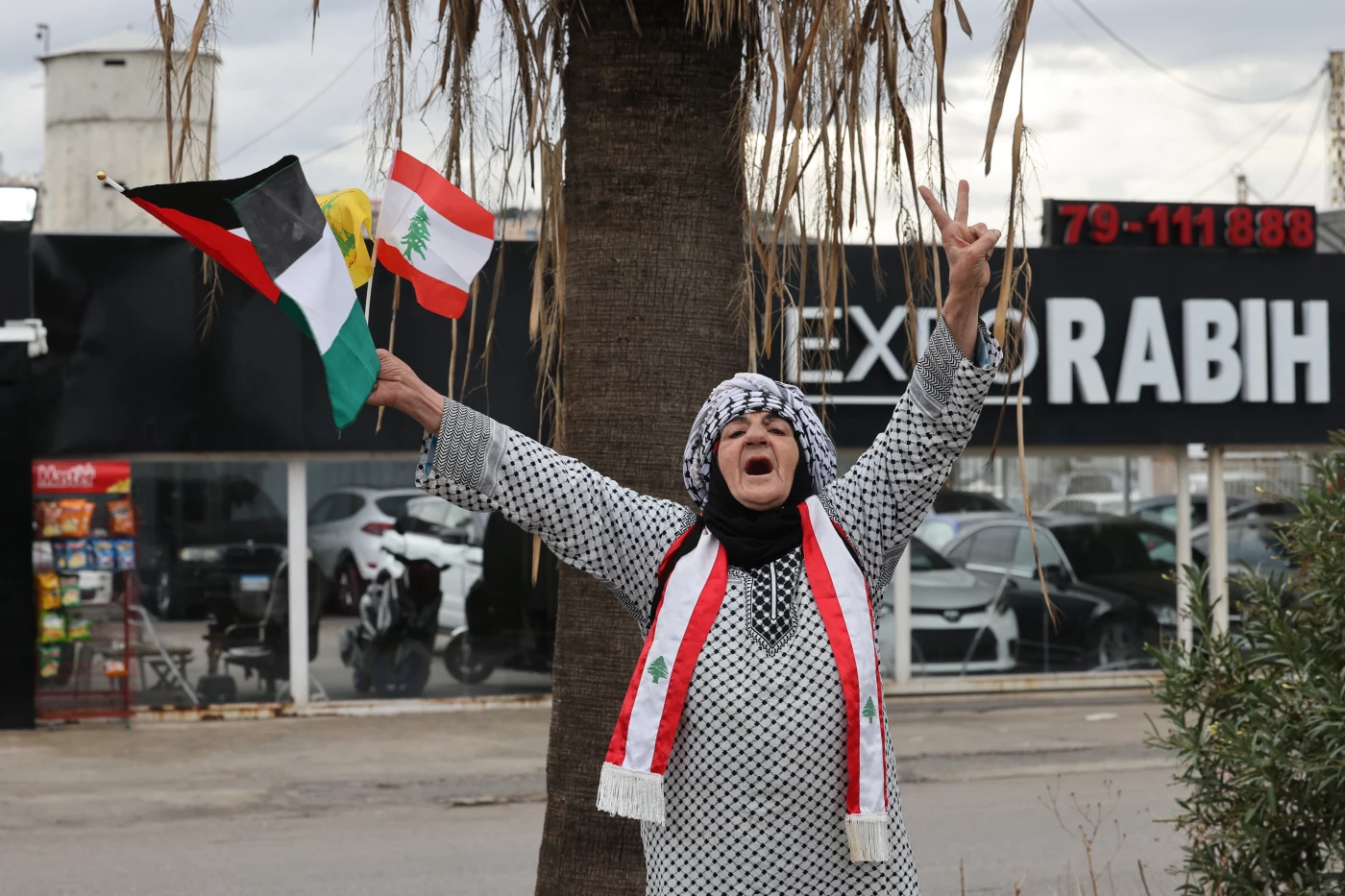
 Facebook
Facebook
 LinkedIn
LinkedIn
 Telegram
Telegram
 X
X
